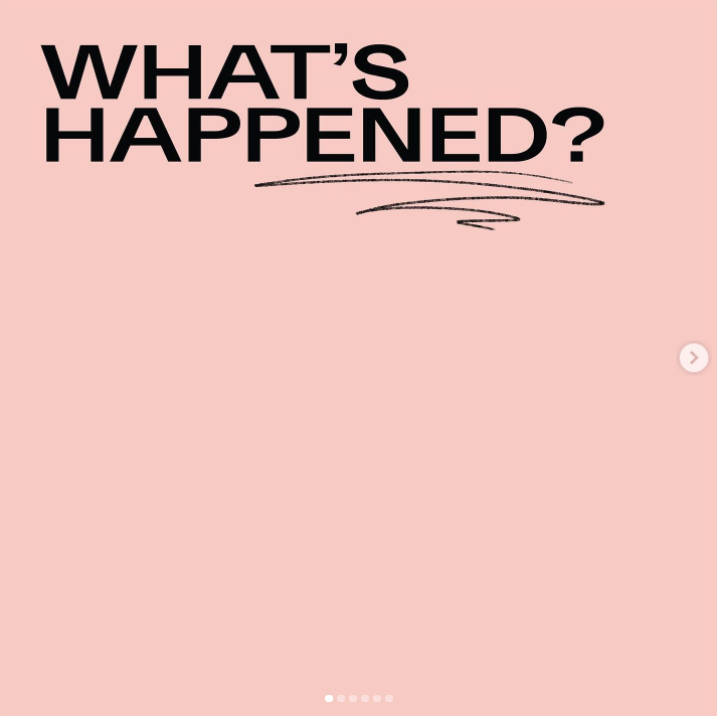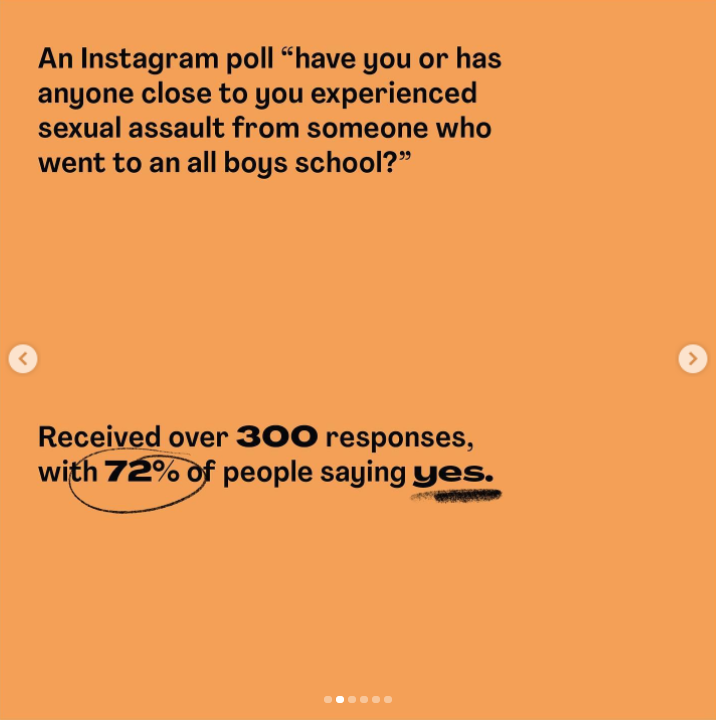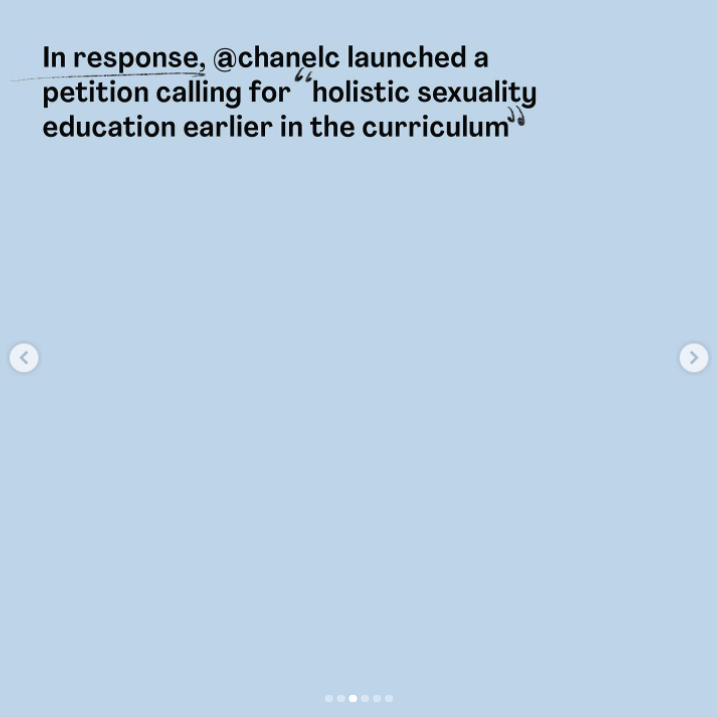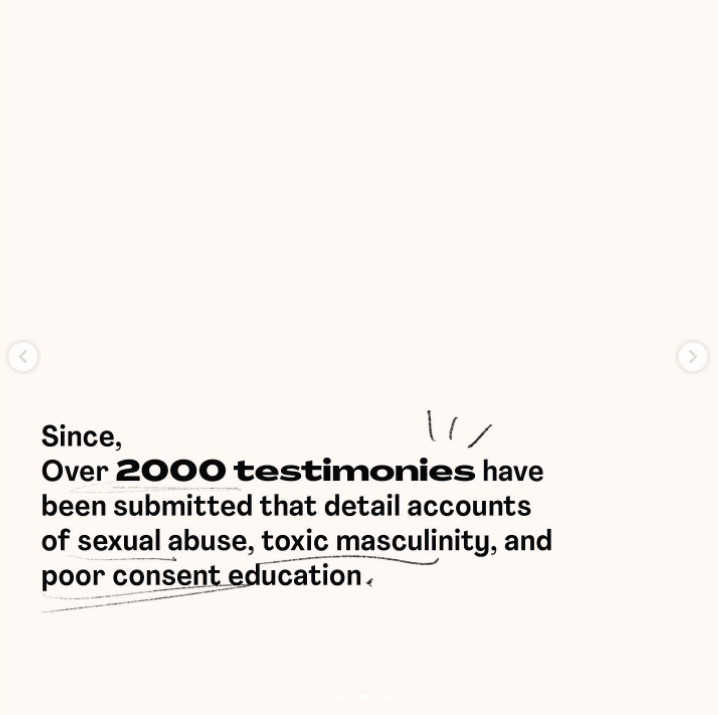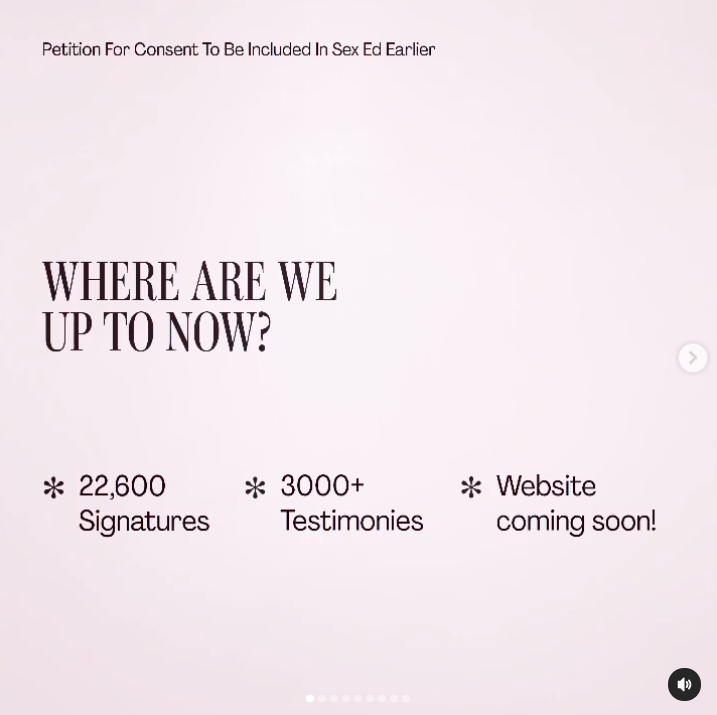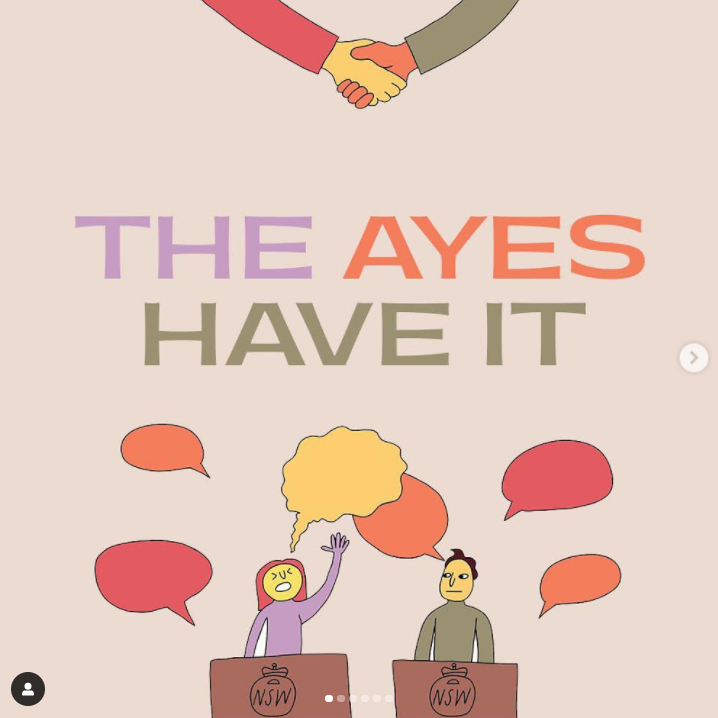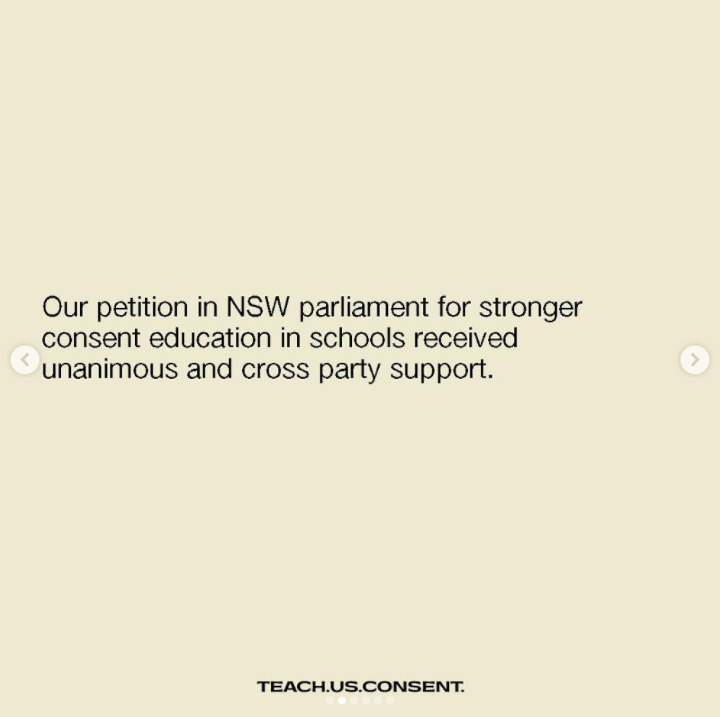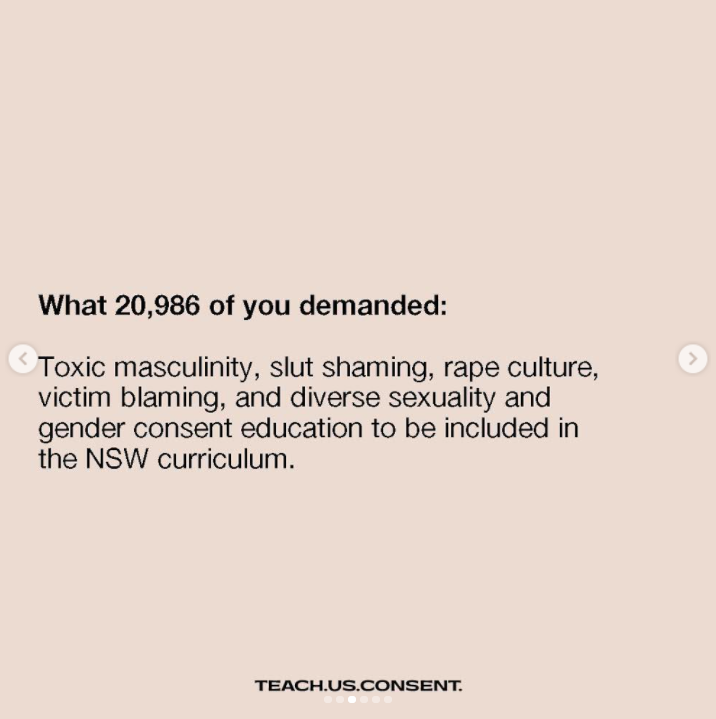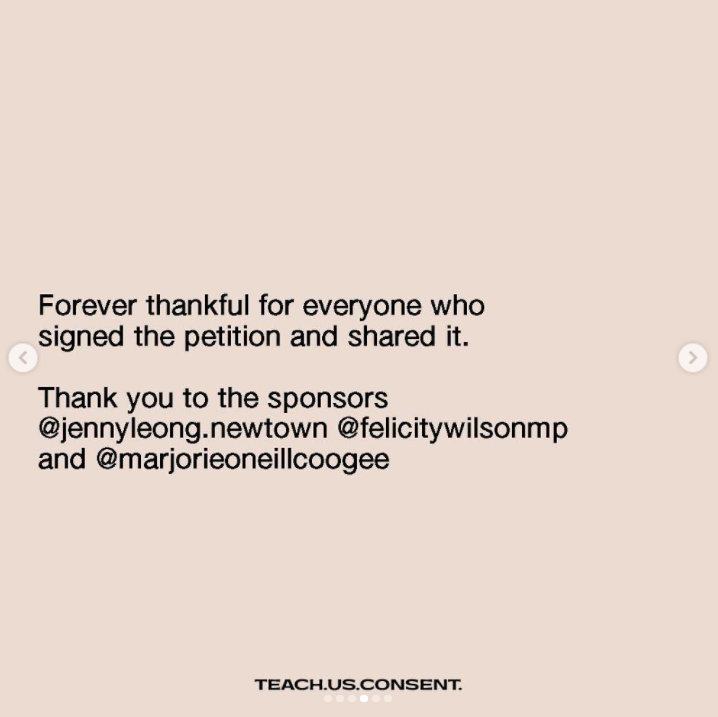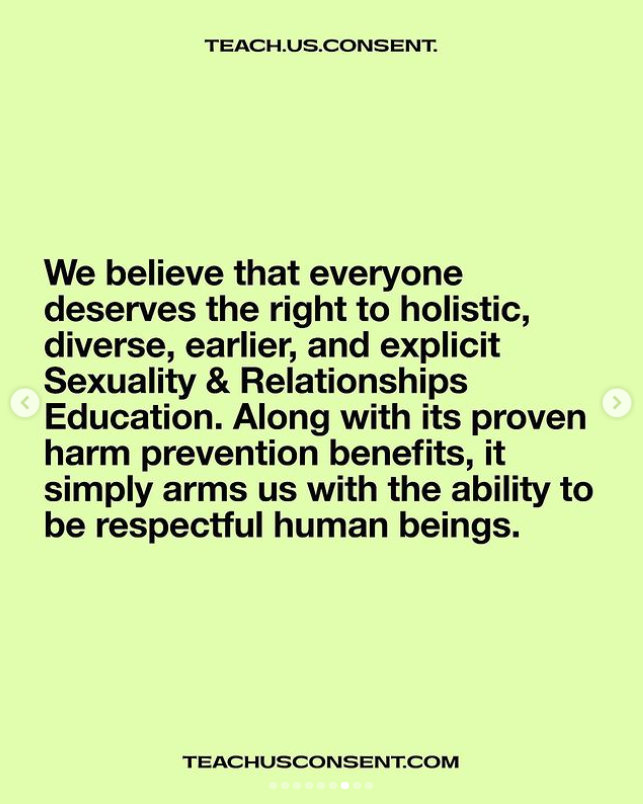Sex Ed in Schools
May 2023
Hey Caddyshackers,
Introducing this month’s guest blogger Eliza (She/ Her) who is a passionate youth reproductive and sexual health advocate with a keen interest in community consultation, healthy public policy and youth engagement.
Hi there, Eliza here, I am from Family Planning NSW.
We’re well over the halfway point for term 2 of the school year… where has the time gone?!
We thought it would be a good time to chat about all things sex ed, or comprehensive sexuality education, which is the international term holistic sex ed is known by.
Comprehensive Sexuality Education
There’s been A LOT happening in this space these past few months which has been gaining momentum thanks to the work of many amazing young activists and leading reproductive and sexual health and rights organisations like the team at Family Planning NSW!
What do we know about sex ed?
Before we get in to the Nitty Gritty of it all, let’s summarise what we know:
1. Teaching young people about sex, sexuality, their body and relationships should start at an early age, be age-appropriate, evidence-based, relevant, engaging, inclusive and holistic. It should also be part of a wider curriculum taught both within schools and outside of these settings
2. There are many benefits of evidence-based comprehensive sex ed for young people. These include:
reduced rates of sexually transmissible infection (STI) and blood borne virus (BBV) transmission #safersex
promotion of gender equality, respectful relationships and healthy social norms #equalityforall
a positive impact on safer sexual behaviours (increased condom and contraception use) which leads to reduced rates of unintended pregnancy #freedomcondom
Get free condoms via Family Planning NSW’s Freedom Condom project!
3. Despite the large amount of evidence that supports teaching comprehensive sex ed in schools, some teachers feel uncomfortable or ill-equipped to provide this essential education
4. Most parents (over 80% in fact) are supportive of students’ learning about gender and sexuality diversity in schools when this is part of relationships and sexual health education (check out this awesome article for more info)
5. Even though we have a National Curriculum which includes content on relationships and sexuality here in Australia, there is still not a consistent approach to the delivery of comprehensive sex ed to young people, meaning many students miss out, or do not receive high-quality education on essential topics like puberty, bodily autonomy and sexual health!
What’s happened over these last 12 months?
Power to the people!
The activism of students and young people has changed the way in which consent and consent education (a critical part of comprehensive sex ed) is thought of in NSW and across Australia, and has led to MAJOR reforms, both in education and the law. #affirmativeconsent
While this is a huge step forward, more needs to be done to ensure holistic and inclusive comprehensive sexuality education is consistently included within school learning.
Let’s recap shall we…
In February 2021, youth advocate Chanel Contos posted an Instagram story asking followers if they or someone close to them had been sexually assaulted by someone when they were at school. Within 24 hours, over 200 people had replied ‘yes’.
Soon after, Chanel launched an online petition calling for more holistic and earlier consent education in Australia. Since the launch of the petition, over 44,000 people have signed it, sparking a conversation that redefined how many Australians understood consent. #teachusconsent
Since posting the petition, there have been many more discussions with politicians, and commitments made by state and federal governments to include more explicit consent education within schools. Education ministers have “unanimously” voted to mandate consent education in the national curriculum – a huge win, all based on youth advocacy!
There have also been a few ‘not so good news stories’ around sex ed, particularly within NSW.
In 2020, One Nation NSW introduced the Education Legislation Amendment (Parental Rights) Bill 2020 which would have denied students the right to receive a quality education in a safe and inclusive environment, and limited the ability of teachers to provide effective and holistic education, including inclusive sex ed.
This Bill went through an inquiry process and in March 2022, the NSW Government rejected the Bill thanks to tireless advocacy of young people and many youth and sexual health organisations. It was great to see the government recognise the importance of inclusive education for all. #win
While some people and institutions hold strong (and sometimes negative) opinions about comprehensive sex ed, it is important to always consider the evidence, what the experts say and what young people want because ultimately, it’s their education!
So… why do we need a comprehensive national curriculum that includes sex ed?
You’ve heard about the benefits and the reports of many young people wanting sex ed that is inclusive, holistic, and representative of their real-life experiences.
The evidence is clear:
Young people want relevant, inclusive and engaging sex ed
Teachers want to provide their students with effective, evidence-based sex ed
Parents want sex ed (including relationships and sexuality topics) to be delivered in schools
So, what do we do, and how do we do this?
We can do this by better integrating holistic and inclusive comprehensive sexuality education into the existing National Health and Physical Education Curriculum and by offering better support for teachers who provide this education!
Many people and organisations have advocated for comprehensive sexuality education to be specifically integrated within the National Curriculum, so that all students have the skills and knowledge required to achieve and maintain respectful relationships and have great reproductive and sexual health and wellbeing throughout their lives.
While the National Curriculum recognises some of the essential topics of comprehensive sex ed, including respectful relationships and consent, it does not cover the full scope of topics, and the quality of this education needs to be improved.
For example, there is very little to no information available within the curriculum on:
reproduction, pregnancy, pregnancy options and contraception
sexual health, STIs, condom use and pleasure
gender and sexual diversity
the influence of technology and the media, pornography and sexting
bodily autonomy
What we need is a robust National Curriculum that encompasses the full scope of comprehensive sexuality education topics.
By having sex ed comprehensively incorporated within the National Curriculum, we can ensure all students receive a consistent level of sex ed throughout their schooling years, and support teachers with practical and best practice guidance on how to deliver this essential education.
Where to from here?
Keep speaking up – your voice matters, and young people are agents of change!
We encourage you to keep talking about the importance of sex ed to your parents, teachers and other decision makers. Advocating for the full scope of comprehensive sexuality education to be integrated as part of the National Curriculum is an important issue that we need everyone to keep working on.
Finding quality info
Whether you’re a young person looking for reliable information, or an educator or youth worker after training and resources, you can find some GREAT info here on the Caddyshack Project website, on NSW Health’s Play Safe website, or check out these Family Planning NSW’s youth-friendly websites.
If you’d like to learn more about some of the advocacy Family Planning NSW has done in this space, head to our website. You can specifically check out this submission too!
What we are loving
This month, we’re absolutely loving the latest published research by the amazing Western Sydney University researchers Associate Professor Jacqueline Ullman and Associate Professor Tania Ferfolja around parent’s perspectives of gender and sexuality education in schools.
You can read the full article, or a snapshot from Western Sydney Uni’s media release!
Thanks for having me,
Peace, Love & Protection,
Eliza


